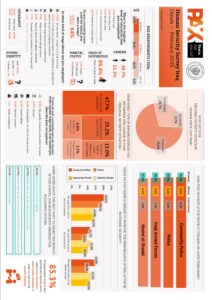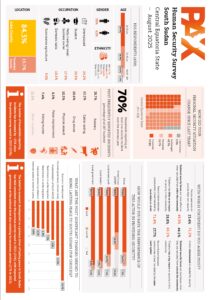HSS teams across Iraq plan for new rounds of Data Collection and Community Engagement
PAX and its local partners are busy preparing for new rounds of both data collection and community engagement across Iraq through our Human Security Survey (HSS) initiative. PAX staff held two trainings to support our field teams in June and July.
The first was a two-day workshop for our partners in Basra and Kirkuk governorates to build and practice facilitation skills. Participants were members of our data collection teams who contributed to our recent round of data collection in April 2019. The purpose of the training was to help both teams prepare for the upcoming community engagement phase whereby they will bring the research results back to communities to both validate the findings and discuss key priorities and opportunities for how to improve the protection environment.
Together we discussed a variety of key skills and tools associated with effective facilitation, from managing difficult conversations to guiding decision-making processes. Participants also had a lot of opportunities to practice these skills through interactive exercises and scenarios. The teams also had an opportunity to test out our new interactive online dashboard [see links on the right of this page] and practice using it to craft event agendas tailored to different audiences.
Look out for updates in the coming weeks and months as our facilitators organise events across Basra and Kirkuk to build understanding about the experiences and priorities of civilians, and engage with authorities to advocate for meaningful action to improve the protection environment.
Just a few weeks later, PAX invited a new team of enumerators from Salahaddin to join for a training in data collection fundamentals. The 16 enumerators came from all across the governorate with varying levels of previous experience in conducting quantitative research, but all left with the skills and knowledge necessary to conduct surveys for the HSS.
The trainees learned about research ethics, conflict- and gender-sensitive data collection, random selection procedures, digital security and mobile phone best practices, dealing with resistance, communication and security protocols, and other key topics. They also had a lot of opportunities to practice conducting interviews in a variety of different circumstances.
The Salahaddin team will begin data collection in August, and aim to conduct between 600 and 750 interviews within just two to three weeks. Stay tuned for stories and photos from the fieldwork, and we and our partners will look forward to sharing the survey findings this autumn.
About this news
Date of publication:
Aug 20, 2019
Author:
Carrie Huisman


